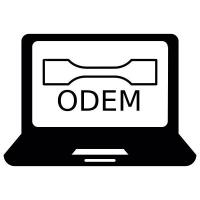
Open Data in Experimental Mechanics
Episode 4: Long term availability of raw experimental data in experimental fracture mechanics
In this episode, we briefly present the results of our first paper [1]. Having access to raw experimental data is a cornerstone for reproducibility in experimental fracture mechanics, which is crucial to the scientific method. First, we present the methodology of the paper. Second, we go briefly through the main finding of the study. Last, we emphasize some potential solution to address the found issues.
References
- Patrick Diehl, Ilyass Tabiai, Felix W. Baumann, Daniel Therriault, and Martin Levesque. Long term availability of raw experimental data in experimental fracture mechanics. Engineering Fracture Mechanics, 197:21–26, 2018 link, preprint
- T. H. Vines, A. Y. Albert, R. L. Andrew, F. Debarre,D. G. Bock, M. T. Franklin, K. J. Gilbert, J.-S. Moore,S. Renaut, and D. J. Rennison. The availability of research data declines rapidly with article age.Currentbiology, 24(1):94–97, 2014.
- M. Baker. 1,500 scientists lift the lid on reproducibil-ity.Nature News, 533(7604):452, 2016.
Paper: Long term availability of raw experimental data in experimental fracture mechanics
In this blog post we briefly present the results of our first paper [1]. Having access to raw experimental data is a cornerstone for reproducibility in experimental fracture mechanics, which is crucial to the scientific method. To study the long term availability, the corresponding authors of the eleven most cited papers, related to experimental fracture mechanics, for every year from 2000 up to 2016, were kindly asked about the availability of the raw experimental data associated with each publication. The Bibtex files containing these publications are available here. For the 187 e-mails sent: 22.46% resulted in outdated contact information, 57.75% of the authors did received our request and did not reply, and 19.79 replied to our request. The availability of data is generally low with only 11 available data sets (5.9%).
»Episode 3: Open Data Portal Austria
In our first episode Tanja mentioned the Open Data Portal Austria which is an initiative which provides a website for people to look for open data sets. The platform features data from companies mostly. In this episode we interviewed Clara Landler, who is the program manager for this initiative. Since the platform exists for three years our goal was to extract information about open data in general and specifically for ODEM.
We can conclude with two major points. First, the concept of open data is at least in Austria not widely spread. Especially it is not easy to convince companies to share their data. Second, building a platform is easy, building a community around it is not so easy but essential for receiving data sets and encourage people to update them.
»Episode 2: Scielo
During the PKP conference, we heard a really interesting talk about the SciELO (Scientific Electronic Library Online). The platform allows authors to publish their papers from Brazil, which is the country from which the country originated, but it also became a model for more than 14 countries which are now using their own SciELO publishing systems to manage publishing. An important point here is that all papers on the SciELO platform are Open access, not all of them are in english, but SciELO Brazil is currently encouraging all SciELO publishing plaptform to push for more english publications. SciELO recently anounced that they will soon also have a preprint server and are thinking of starting an open data platform to support their publications. The platform is truely pushing for open standards and sharing.
That is how we met Alex Mendonca, who is a member of coordination team of the SciELO organization. We were mostly interested in the open data platform they are working and had questions about how the platform should be designed, which features it should propose and which main issues it will have to deal with. We recorded a 16 minutes interview with Alex during the PKP, you an listen to this episode here.
»Episode 1: Survey for the needs of potential users
With our first episode we wanted to get feedback from potential users from the experimental mechanics and computational engineering fields about our project idea. Therefore, we interviewed three of our colleagues: Tanja Pelzmann, Antonio Castro Moreno, and Yahya Abderrafai to get their opinion about the issues we explored in our first blogpost and to evaluate our solution..
You can listen to the episode here:
»